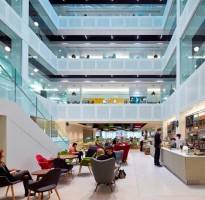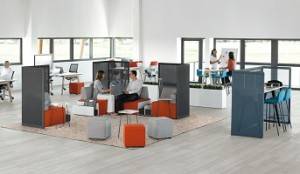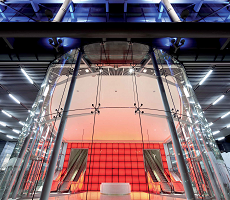June 11, 2014
Workplace features heavily in latest round of Government cuts and cost reductions
 The workplace features heavily in the latest round of cost savings announced by the UK Government. Of the £14.3 billion of cost reductions, £5.4 billion has been cut in the procurement of goods and services, with the Cabinet Office drawing particular attention to the use of consultants (which is probably the bulk of it), and the use of printer cartridges and paper (which isn’t). In addition, around £600 million was saved with the divestment of unused buildings and an increase in the number of departments sharing offices. The savings are driven by the Efficiency and Reform Group (ERG) which was set up by the Treasury and the Cabinet Office in the wake of the 2010 general election, and works with departments to make savings and address what it considers wasteful spending. This year’s savings follow £10 billion saved for 2012 to 2013, £5.5 billion in 2011 to 2012 and £3.75 billion in 2010 to 2011.
The workplace features heavily in the latest round of cost savings announced by the UK Government. Of the £14.3 billion of cost reductions, £5.4 billion has been cut in the procurement of goods and services, with the Cabinet Office drawing particular attention to the use of consultants (which is probably the bulk of it), and the use of printer cartridges and paper (which isn’t). In addition, around £600 million was saved with the divestment of unused buildings and an increase in the number of departments sharing offices. The savings are driven by the Efficiency and Reform Group (ERG) which was set up by the Treasury and the Cabinet Office in the wake of the 2010 general election, and works with departments to make savings and address what it considers wasteful spending. This year’s savings follow £10 billion saved for 2012 to 2013, £5.5 billion in 2011 to 2012 and £3.75 billion in 2010 to 2011.






















May 13, 2014
Workplace design, Facebook likes and the need of companies to be your friend
by Mark Eltringham • Comment, Environment, Facilities management, Workplace design
(more…)